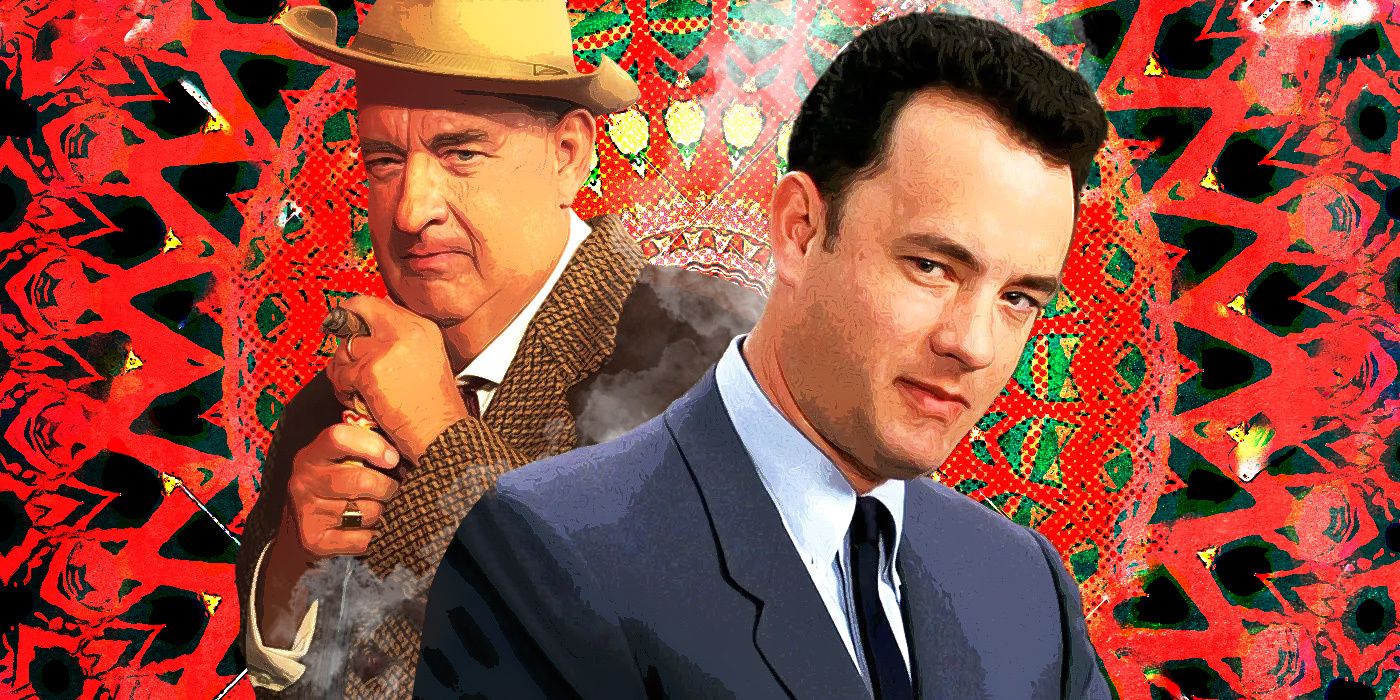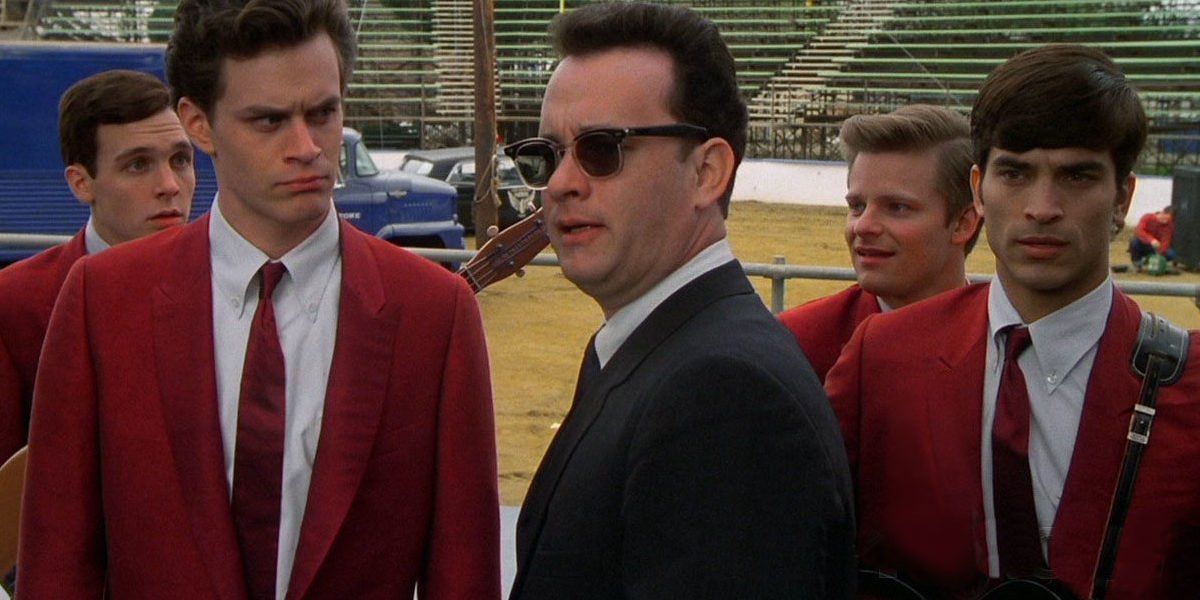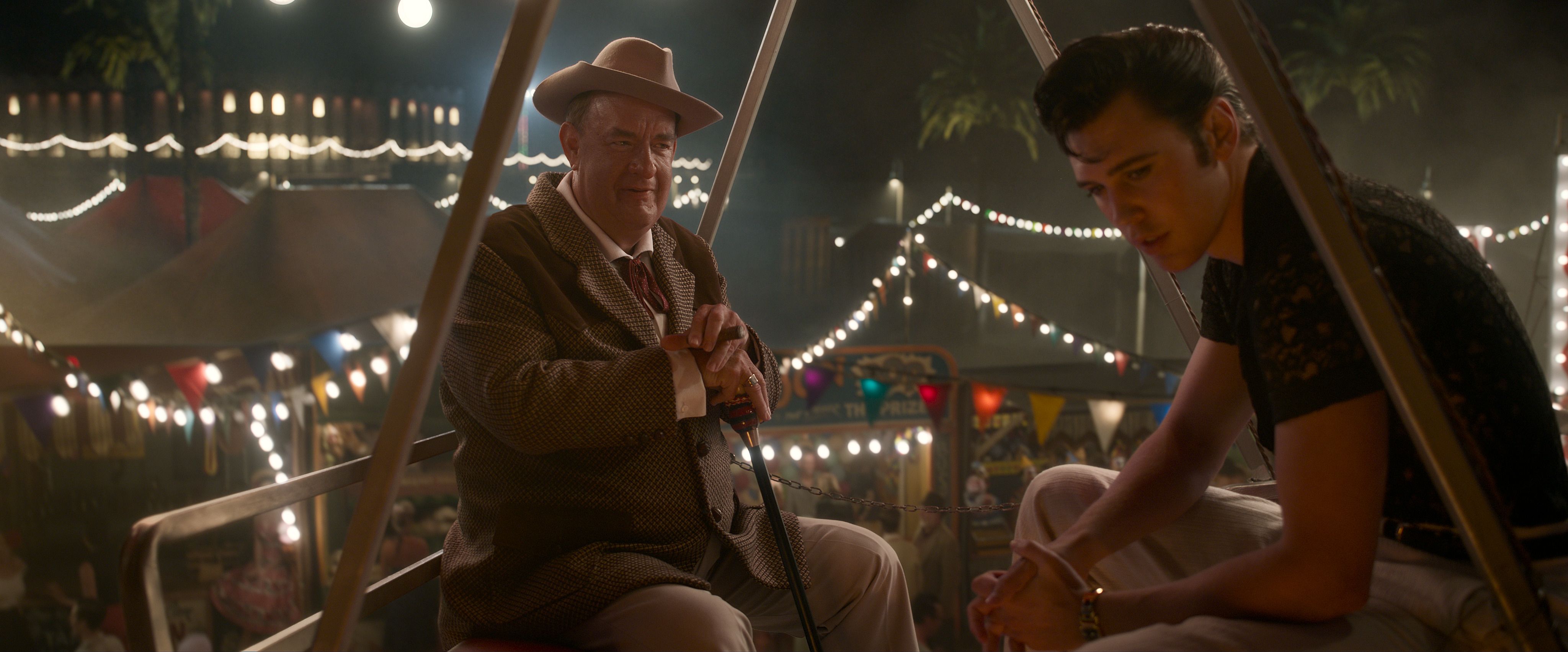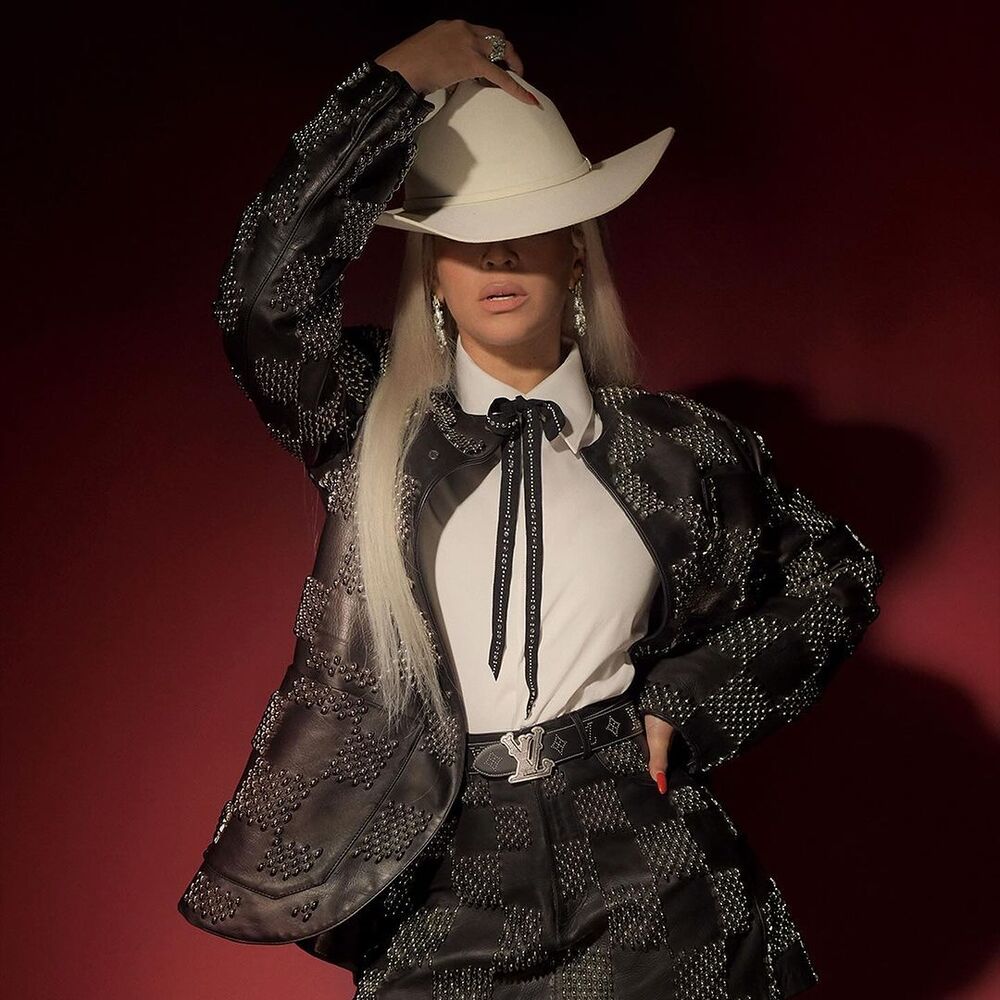Before Tom Hanks’ performance in Elvis as Elvis Presley’s manager Colonel Tom Parker, he played a similar, albeit far less nefarious, role in the 1996 film That Thing You Do! Just like in Elvis, Hanks plays the main characters’ musical manager Mr. White as the band, The Wonders, rises to fame. Hanks not only acted in the movie, but directed and wrote the film as well. Though the characters themselves are very different – Mr. White is a practical and beneficial figure for the protagonists, while Colonel Parker is much more villainous – Hanks plays the same stock character with relation to their respective films’ protagonists, all of whom encounter a similar fate. Tom Hanks seems distinctly drawn to these kinds of stories, especially in the music industry, and the many factors that can cause a downward spiral after a meteoric rise to fame.
That Thing You Do! follows the story of a fictional band called The Wonders through the eyes of its drummer, Guy Patterson (Tom Everett Scott). In Erie Pennsylvania, while Guy works in an appliance store, his acquaintances Jimmy Mattingly (Jonathan Schaech) and Lenny Haise (Steve Zahn) are busy starting a band called ‘The Oneders.’ Right before their first performance at a local talent show, their drummer, Chad (Giovanni Ribisi), breaks his arm–knowing he can play the drums, Jimmy and Lenny ask Guy to fill in. They end up winning the show and getting a gig playing at a local pizza parlor. They soon acquire fans in their hometown who ask them to make a record. After recording “That Thing You Do!” and selling 45s of it, Local talent promoter Phil Horace (Chris Ellis) notices them and promises that, if they sign with him, he’ll get them on the radio within 10 days. They sign, and he both gets the song on Pennsylvania radio and books them a concert in Pittsburgh. Phil introduces Guy to Mr. White, an A&R representative with Play-Tone records, with the news that Mr. White wants to be their manager. White rebrands the band as ‘The Wonders,’ gives them a signature look, and takes them on tour. Jimmy’s girlfriend Faye (Liv Tyler), who helped form the band, comes along as well. The band’s popularity skyrockets, and “That Thing You Do!” soon climbs to number 7 on the Billboard top 100.
Meanwhile, internal tensions mount. Jimmy grows increasingly irritated at Mr. White’s management style and wants to record new songs instead of promoting old ones, and starts ignoring Faye. Before a television appearance, their bass player (Ethan Embry) runs off with a group of marines and has to be replaced, Guy is hungover from a night of drinking with his favorite jazz musicians, Jimmy has stomach flu, and Lenny is cavorting with his new girlfriend. When they’re finally onstage, a TV caption announces that Jimmy is engaged. This makes him furious; he blows up at Faye and Mr. White, and she breaks up with him. The next day, Lenny is missing from the recording session, having run off to Vegas with his new girlfriend, and Jimmy quits because he’s upset Mr. White isn’t having them record more original songs. Guy is now the only one left, and Mr. White assures him that such stories are common in the music industry. However, the movie ends on an uplifting note. Guy and Faye realize they love each other and stay in LA, getting married and founding their own music conservatory. Onscreen text reveals that Jimmy became a record producer, the bassist earned two purple hearts in Vietnam, and Lenny is a casino manager in Nevada (and is currently single).
When Collider interviewed Tom Hanks after Elvis, one of the questions he was asked was if he could make any film he wanted, what film that would be. His answer was that he’d love to make a movie about a singer named Dean Reed who achieved Elvis-level fame specifically in Chile and behind the Iron Curtain. Nicknamed “Red Elvis” and “Comrade Rockstar,” he was the most popular singer in the Soviet Union, despite being an American. Hanks seems to have a unique relationship with the music industry, and the stories that that industry generates. He also nearly made a movie with Martin Scorsese about Dean Martin, which unfortunately fell through. Stories about the music industry in particular provide a unique stage for human drama by pushing their characters to their own, and to each other’s limits–often with unfortunate results. However, a certain formula doesn’t mean identical stories: Elvis and That Thing You Do! technically share a similar structure, but they are fundamentally different precisely because of the personalities at play within them, and the relationships between those personalities. Part of the lightheartedness of That Thing You Do! lies in the fact the main characters’ downfall doesn’t go much farther than the dissolution of their band and the loss of their fame. On the other hand, Elvis plays almost like a Shakespearian tragedy. In an interview with EW, Hanks even says that the Colonel and Elvis’ relationship reminded him of Falstaff and Hal from Henry IV, and that this Shakespearian aspect to the story was part of what drew him to it; specifically, the untold story of the relationship between Colonel Parker and Elvis. In the end, what combines all of these movie concepts, whether it be Dean Reed, Elvis, or the Wonders, is the idea of specifically untold narratives within the music industry–even if the film’s subject is someone as famous as Elvis Presley.
Being the manager for a musical act is the epitome of being behind the scenes, and the ultimate role from which one witnesses untold drama unfold– sometimes even being the cause of that drama. In an interview with The Ringer, Chris Ellis describes That Thing You Do! as having been Hanks’ dream project for a long time. In the same interview, Hanks cites his fascination with the rock group Jan and Dean while he was in high school–a band that only stayed together only long enough to make it through their first tour. He also recalls wondering what life was like for Jimmie Nicol, the English drummer who replaced Ringo Starr in The Beatles for eight shows when Ringo came down with tonsillitis. Both of these are the stories of what the adoring audience doesn’t get to see, and this mystery provides the opportunity for the kind of compelling dramatic storytelling that Elvis and That Thing You Do! take advantage of, each to a wildly different effect.
A biopic of Dean Reed, if told from a very personal angle, would similarly show the inner workings of a man who, on the outside, appeared very contradictory and bizarre. Both Elvis and That Thing You Do! are similarly about the interior dynamics of a musical act in contrast to what is seen by the public eye. The Wonders have a carefully curated public image: the matching suits, the boy band wholesomeness, the fact that Guy always wears sunglasses. This image, meanwhile, is hiding the disintegrating relationships between the band members. Elvis is also about the careful effort made to maintain a certain appearance. For example, when the media condemns Elvis for indecency, Parker tries to create a new, more wholesome Elvis, even to the point of sending him to the military when Elvis rebels and reverts back to his earlier persona onstage. There is a constant struggle between the veneer that Elvis wants to project for himself and that which Colonel Parker wishes to craft for him, and it is this power struggle that forms so much of the conflict between the two men. The audience sees the performance styles, the changing costumes, but what they don’t see is the parasitic relationship between the musician and his manager causing these shifts from behind the scenes. The ardent fans of The Wonders see this fun-loving, wholesome boy band, one of whom is even seemingly engaged to his longtime girlfriend. What they don’t see is that the boys’ real personalities are wildly different from those projected onstage. Jimmy’s cruelty to Faye and his rage upon discovering that, for publicity, Mr. White has insinuated that they’re engaged is in complete opposition to the charming personality he projects to fans. Ironically, Guy, whom Mr. White has trademarked as the “bad boy” of the group by making him always wear sunglasses, is actually the most selfless and wholesome.
Being Elvis’ and the Wonders’ managers puts Colonel Parker and Mr. White at the center of both their clients’ public and private lives. The tension between these two lives makes up much of the tension of the films. While the musician’s life is split into these public and private personalities, the manager has a foot in each, and is the glue that ties them together. Whether that man is good or bad would seem to have a large part in determining his client’s destiny. It is interesting, therefore, that despite Mr. White’s professionalism, the Wonders still disintegrate. However, the difference between the story of The Wonders and Elvis is that the former shows that sometimes even a good manager like Mr. White can’t save you from yourself. Meanwhile, a villainous one such as Colonel Parker may bring you down despite your best efforts. It makes sense that Hanks’ interest in these unique dynamics would stem from more than just a love of music. In thinking about Jimmy Nicol and Jan and Dean, he asks “What is it that we don’t see?” Despite the seemingly similar trajectory of a musical act that crashes and burns after a meteoric rise to fame, it is ultimately this question that truly ties Elvis and That Thing You Do! together. Hopefully, Tom Hanks will continue to answer it in the future, whether it be with the music industry and Dean Reed, or some other subject entirely.
























































![Key Metrics for Social Media Marketing [Infographic] Key Metrics for Social Media Marketing [Infographic]](https://www.socialmediatoday.com/imgproxy/nP1lliSbrTbUmhFV6RdAz9qJZFvsstq3IG6orLUMMls/g:ce/rs:fit:770:435/bG9jYWw6Ly8vZGl2ZWltYWdlL3NvY2lhbF9tZWRpYV9yb2lfaW5vZ3JhcGhpYzIucG5n.webp)



















